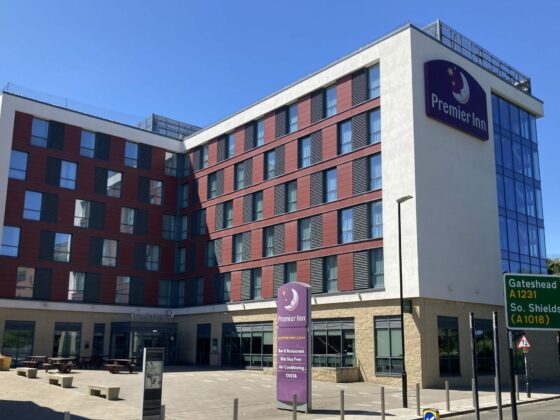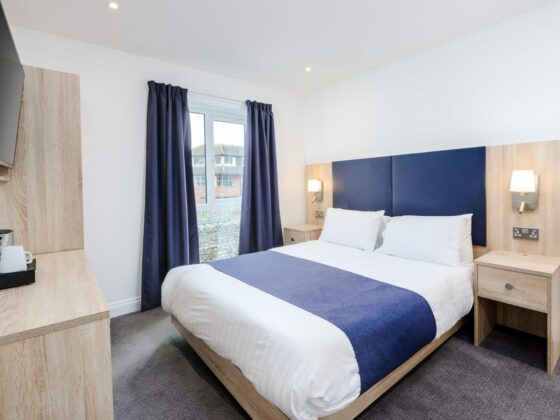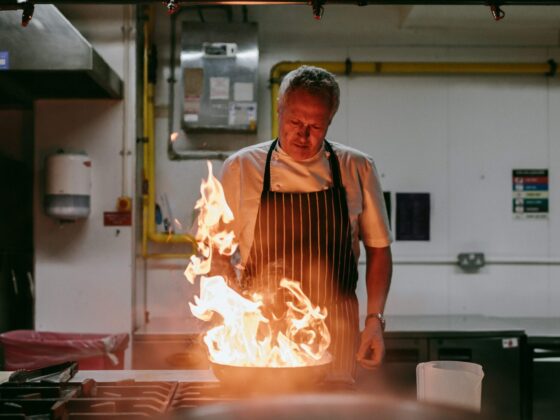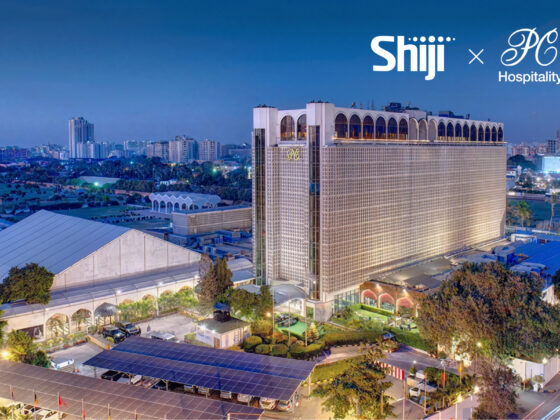Jessica: I was on a call recently with a current client of mine, and when we started to breach the subject of branding, right instantly in the mind, it’s graphic identity. It’s the logo, it’s the font, it’s the assets, it’s the collateral. I said, no, no, no, no, no. We need to spend some really valuable time to think through what is the story we’re trying to tell and does that satisfy need in the market of where this concept is going. Is there other things we can weave in that make it so much stronger? Whether it’s the chef that’ll be a part of the experience or historical context of the buildings that it’s going in. Spending some real dedicated time on crafting that brand narrative, often gets overlooked.
Josiah: That’s interesting because when I think of crafting the brand narrative, it sounds like it could start from a number of locations, whether it’s the person’s point of view or the building. So there’s not necessarily one perfect way to start every process. It sounds like there’s research and discovery to see, OK, what has the most potential here from a narrative standpoint?
Jessica: Yeah, because I think then if it’s coming from, I think you’re asking the question, right? You’re asking what concept, what brand should fit into here? And now you’re needing to answer that. Well, is it something that wants to be quite personal to myself, you know, if you are a client? Or is it something that needs to fit in with the other competitors in the space and provide kind of an answer to something that’s been lacking? Or I think you just have to start with the question and then start to realize, how will I solve that? What am I looking to solve? And then that starts to kind of lay down the foundation to then start to tell something that feels very much personalized to what you’re trying to achieve.
Josiah: So there’s a lot of disparate pieces here. And I think for a good story, you need to have a through line, right, to take someone on a journey. It seems probably the same for brand experience or guest experience design. How do you think about developing these connecting threads or these throughlines through all these disparate pieces?
Jessica: Sure. For myself, it lands itself into defining what the brand tenants are to really define what will be your pillars of this experience. What will everything tie back to? And the thing about tenants, too, when creating them, is that they never stand alone, right? So if you had a set of four or five words that really started to land what this whole experience needs to be, you can’t take three of them away and the brand still holds true. Everything has to touch onto it. I think it also allows an experience to not be a single note, but often have the juxtaposition of a few different things. Something can be elevated, but also familiar. It doesn’t have to stand on its own of being too posh, but it could be elevated in its approach or in the food type or unexpected, but it feels very familiar. It feels comforting, but still could be higher end to some extent. So there’s a counterbalance, I think, that makes brands successful when you start to define distill it down to a few pillar words that then when you’re working on collateral, okay, what’s a material that might feel familiar but in its design feels elevated? I think you could start to carry those through lines to all elements of the operation.
Josiah: That’s fascinating. I wonder if you could give us a little introduction to your business for people who are unfamiliar with Hospitality Lab? And then I’d love to kind of get into the elements of how you work with clients.
Jessica: Yeah, we just launched Hospitality Lab by Union Square Events, which is of the Danny Meyer enlightened hospitality ethos. We’re from that family tree. We’re the hospitality consulting arm. We’ll have various clients come to us and say, hey, I have a need to develop some sort of whether food and beverage focused or just hospitality operation and experience to my business. I would love the thought process of you all to execute on. My team that I lead is a range of whether from design and branding through culinary development, operational, refinement and also creating what that operational playbook and labor model and staffing model and training might look like, but also the financial aspects, right? To start to kind of create some pro formas to give you that gut check of, well, does this make sense? And how can we create a concept that will hit the mark of what our business is looking to add to? But we have a wide range of current clients all the way from corporate and banking. If you’re in New York and you see the new JP Morgan headquarters getting built, we have been working on that project. We have some cultural centers and museums that we’re currently working with to develop some hospitality experiences within there. We were working with dear friends over at Hilton to develop a couple of things for them too. Also, recently a restaurant group in Barcelona. Hospitality knows no bounds. I think we now in the world are really understanding the power and magic of thinking through a hospitality lens into any type of business, whether it’s for your guests or your team, right, and applying that in various kind of ways.
Josiah: You said this is all based on this notion of enlightened hospitality. What is that?
Jessica: We have a couple of different principles. I think a couple of the terms that we’re using, collecting dots to connect dots, re-centering the salt shaker is one of my favorites. I think there’s always a time in a project where you just take a step back and go, So let’s get back on alignment, right? It’s the thought of when you’re at a restaurant, right? Our team at Union Square, if that salt shaker is slightly off, they’ll come right back in and without even asking and put it right in the center, right? We’re just establishing back to the right spot this project or group or whatever it needs to be. In Laguna Hospitality is all based off of our founder, Danny Meyer, and his book, Setting the Table. It’s part of our DNA of how we approach not only within the restaurants, but also any of our projects that we’re currently working on.
Josiah: Setting the table was very influential for me as early in my career and kind of thinking about hospitality. I’ll include a link in the show notes and encourage everyone to check that out. I wonder if you could speak a little bit more to this notion of collecting the dots. What do you mean by that?
Jessica: Yes, it’s one of my favorite Danny-isms. It was something I learned on the first day that I joined the team and it immediately clicked. It’s just going into any situation and any conversation and looking to pull some of those pieces of information to then say, I know exactly who you are, what you’re looking to get out of this, and now we’ve got a new connection. A lot of the times if we’re applying it to like in the restaurants, right? It’s often the team having, you know, one guest come in and reading the room and saying, okay, they’re still waiting on their next party. But maybe making a suggestion while you wait, Would you like to sit at the bar or shall we sit you at the table and then present you a menu for you to start perusing? I think it’s just being kind of knowledgeable of picking up those cues of understanding what they’re looking for in either conversation or the experience. And certainly I use that notion of just when I’m speaking to different people and connecting and pulling out, oh, where did you come from? Oh, my goodness. I just met someone from that place, too. And, you know, having to just that moment to connect and hear what everyone’s talking about and really taking note and taking it to heart.
Josiah: What I love about your work at Hospitality Lab is how expansive it is. You mentioned hospitality has no bounds, right? It can be applied everywhere. You’re working with J.P. Morgan’s, you’re working with museums, in addition to some of the best restaurants and hotel groups. What have you learned about applying hospitality outside of hotels and restaurants? I’m really curious on these elements of hospitality that could be applied to any context, because obviously hospitality providers listening to this could use it. But if there’s a listener who’s not working in hospitality, I’m curious what elements that you have found apply anywhere.
Jessica: I think it’s the way that each member works and communicates with each other. It’s not just from the team to the guest. That certainly is from A to B and an understood easily method of applying hospitality, but it’s also from me to you, co-worker to co-worker. and taking into that same consideration and gestures into that. Recognizing a friend has a bad day, how can I help you? What can I take off your plate? Here, I saved this last donut for you, or whatever it is. But it’s just that looking into those interactions in that same way, and certainly the work that we’ve been doing with JP Morgan, there was an initial need from them of part of the question, right? Return to office. How do we make it exciting again for our employees to come back? And what can we do to surprise and delight for so many other ways to say it? But it’s also turned into a bit of, how can we start to create the hospitality playbook, if you will, for the way that our team and our staff starts to embrace what it means now to work at J.P. Morgan, and starting to apply some of those kind of fundamental, for us, that enlightened hospitality approach to the way your coworkers work with each other, how to book a conference room and all of those different methods. I think that’s been really inspiring to myself to see hospitality take such a pivotal role in just the overall interactions from different people within a team.
Josiah: I imagine by operating this way, you’re going to have happier teams, maybe more productive, effective teams. Maybe you’re able to hang on to your talented people and it helps with retention. It’s good for your employer brand. I feel like there’s a lot, but I’m curious from your perspective, why do you think these businesses across industries are looking to hospitality more?
Jessica: I think it’s the way that you make somebody feel, right? Who doesn’t want to feel that way? A core of our Union Square ethos is this idea of a virtuous cycle and the idea that it starts with your team, your people, and making sure that that relationship is strong and working well. You put focus into that and then the other parts and pieces, whether it’s vendors or clients or otherwise, that then starts to take care of itself. As you take care here, those individual team members can then take care through the whole cycle of your business. I think people love the way that they feel when they come into one of our restaurants. It’s hospitality.








